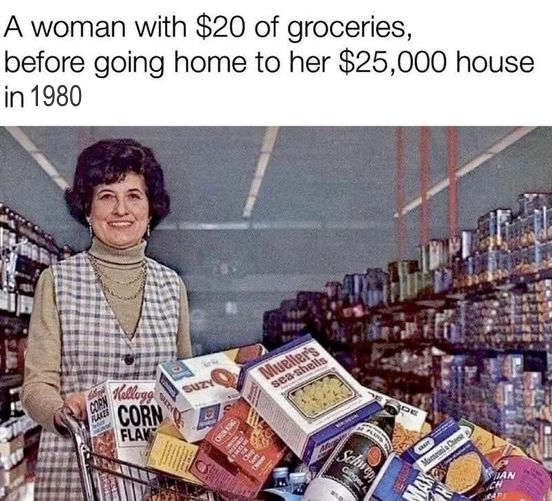So maths time...
If that cart is a weeks of groceries, it takes 1250 weeks of groceries to buy a house in 1980.
According to a 2024 USA today article the average family with kids spends $331 per week on groceries.
If the groceries per house ratio stayed the same, a house would be $413,750 in 2024.
The U.S. median home price was $412,000 in September 2023, according to Redfin.
I dunno seems pretty proportionate.
